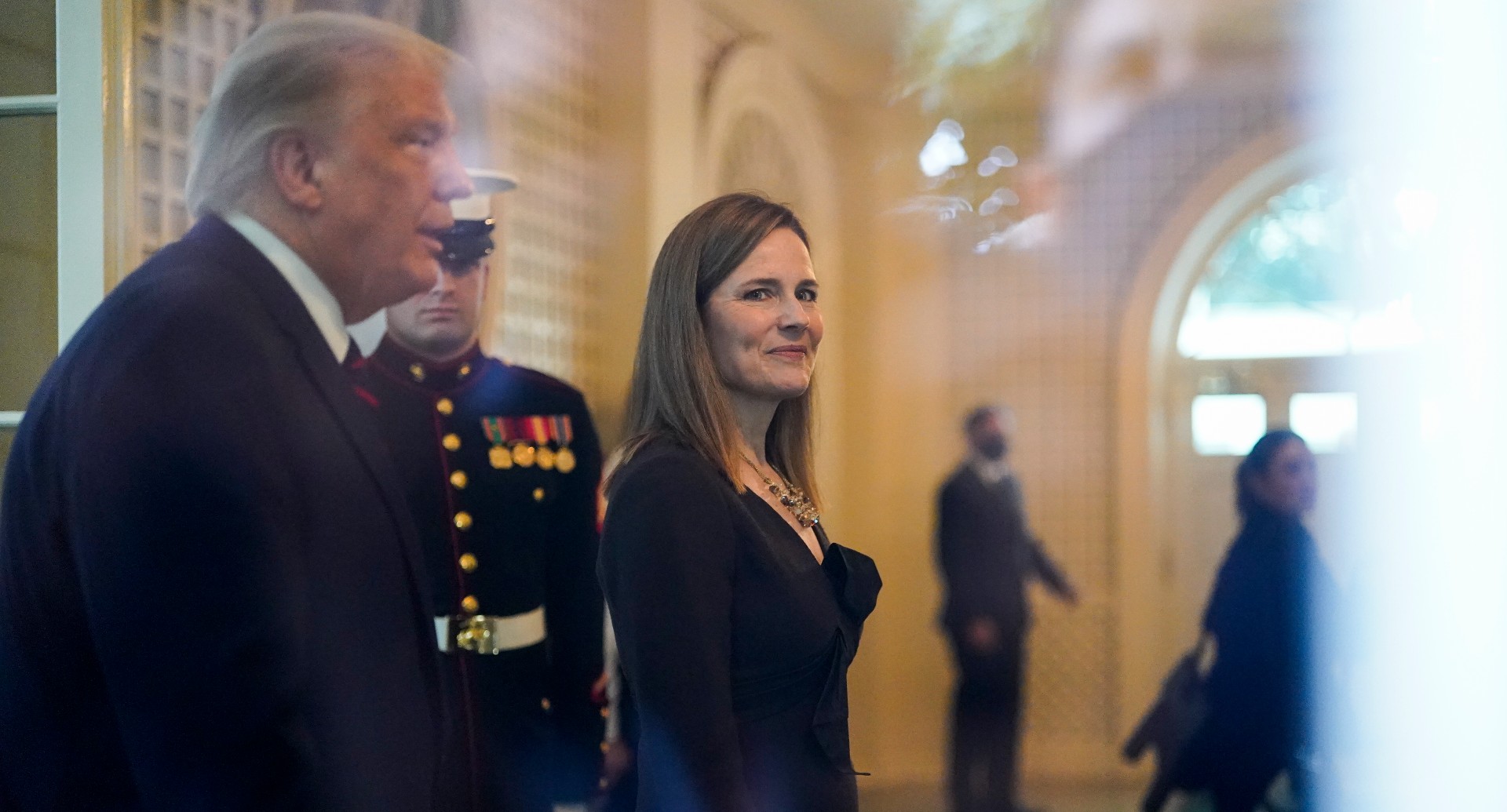OPINION: This article may contain commentary which reflects the author's opinion.
The U.S. Supreme Court delivered a massive 9-0 decision on Wednesday that a California woman could not use U.S. bankruptcy code protection to avoid paying a $200,000 debt, which resulted from fraud by her partner.
“The court said that the woman, Kate Bartenwerfer, owed the debt even if she did not know about her husband David’s misrepresentations regarding the condition of a house when they sold it to San Francisco real estate developer Kieran Buckley for more than $2 million. Buckley had sued the couple and won a judgment for those misrepresentations,” CNBC reported.
“The 9-0 decision written by Justice Amy Coney Barrett resolves a difference of opinion between several federal circuit appeals courts on the question of whether an innocent party can shield themselves from debt for another person’s fraud after filing for bankruptcy. The ruling cited and reinforces a Supreme Court decision in 1885, which found that two partners in a New York wool company were liable for the debt due to the fraudulent claims of a third partner even though they were not themselves ‘guilty of wrong.’ Barrett dismissed Bartenwerfer’s grammar-focused argument, which claimed that the relevant section of the bankruptcy code, written in the passive voice as ‘money obtained by fraud,’ refers to ‘money obtained by the individual debtor’s fraud,'” the outlet added.
“Innocent people are sometimes held liable for fraud they did not personally commit, and, if they declare bankruptcy, [the bankruptcy code] bars discharge of that debt,” Barrett wrote. “So it is for Bartenwerfer, and we are sensitive to the hardship she faces.”
“The Code makes several exceptions to the general rule, including the one at issue in this case: Section 523(a)(2)(A) bars the discharge of ‘any debt … for money … to the extent obtained by … false pretenses, a false representation, or actual fraud,’” Barrett wrote.
“Based on testimony from the parties, real estate agents, and contractors, the court found that David had knowingly concealed the house’s defects from Buckley,” Barrett wrote. “And the court imputed David’s fraudulent intent to Kate because the two had formed a legal partnership to execute the renovation and resale project.”
The Supreme Court is also hearing a closely-watched case involving a quarter-century-old law that has protected tech companies from lawsuits and prosecution for content posted by their users.
The ruling is being closely watched as it could upend rules that have governed the internet.
“Section 230 is seen as a fundamental law of the internet and considered inviolable by its staunch defenders. Section 230 was part of the Communication Decency Act, an anti-pornography law signed in 1996, that helped set the rules of the road for the internet, which was still in its infancy as an online playground for all. The idea was to protect the then embryonic internet sector from cascading lawsuits and to allow it to flourish while encouraging tech companies to moderate their content,” Breitbart reported.
“At the time most of the attention went on limits put on sexual content, a part of the bill that was backed by then-president Bill Clinton and that was later struck down by the Supreme Court in a landmark case. But inserted into the legislation was Section 230 which stated that ‘no provider or user of an interactive computer service shall be treated as the publisher’ or hold responsibility for the content that came from an outside party. Under the protection of Section 230, Facebook, Instagram, Twitter, or YouTube became the conduits of a world conversation without ever being at risk of a lawsuit by someone taking offense at a tweet or a controversial video,” the outlet added.
The Supreme Court also recently heard arguments in a closely-watched immigration case that could set a major precedent.
The Biden administration was questioned over its assumed authority to decide which people in the country illegally they can deport first. A pair of Republican attorneys general from Texas and Louisiana argued that the U.S. Department of Homeland Security is violating federal immigration laws in doing so.
The nation’s highest court is considering a trio of issues distinct to the case and while it’s unclear which way the justices might swing, some did appear to chastise the Biden administration’s arguments.
“At the heart of the dispute is a September 2021 memo from Homeland Security Secretary Alejandro Mayorkas that laid out priorities for the arrest, detention, and deportation of certain non-citizens, reversing efforts by former President Donald Trump to increase deportations,” CNN reported. “Several of the conservative justices on Tuesday seemed ready to rule in favor of the states on a major threshold issue: whether Texas and Louisiana had the legal right to bring the challenge in the first place.”
In addressing whether the DHS guidelines were in conflict with two provisions of federal law, Justices John Roberts, Samuel Alito, and Brett Kavanaugh cited that the law does note some immigrants “shall” be taken into custody or removed from the country, which appeared to suggest they were skeptical of the Biden administration’s assumed discretion.
“Shall means shall,” Roberts said. “Shouldn’t we just say what we think the law is,” he added while suggesting it ought to be left to other branches to “sort that out.”
